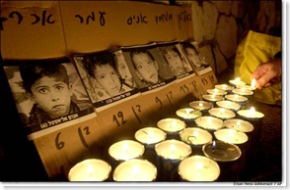The other evening over dinner, my brother-in-law made the observation that their friendships at the church they once attended, must have been based primarily on church affiliation. Because outside of church reference, there was not the give and take of normal friendship development. And it was not a case of not trying.
This little profundity has stayed with me as something like an explanation of what others have experienced since moving away from a long attended church.
The realization that friendships, taken as something reasonably resilient, may only be church deep, is perhaps one shadow side of an otherwise functioning church.
This is not a comment on the vagaries of human faithfulness and reliability. We all share and carry degrees of infidelity. All of us tend to be busy and lazy at the same moment. As well, the tenuousness of “church-friendships,” if that’s what it is, is not everyone’s experience.
However there does seem to be some shared experience and I am curious as to how broad it may be. Many of us who have or had attended church for sometime, have known people in apparently long and deep friendships, where one person, because of a new direction taken by the church, or an attraction to something perceived as a larger or more genuine Christian experience, has left their church for another one, and as a result the friendship was lost; occasionally even becoming antagonistic. And, at the same time, a friendship, that was outside of church, held without any difficulty.
As a localized phenomenon, this is troubling enough. But indications are that it extends farther across the Christian church.
Of course it’s not fair to hold the church responsible for psychological and relational ills we bring to it. But there seems, beyond this, something about the church that creates or contributes to a certain dysfunction. And questions remain.
Is the church more body-cast than incubator? That is, does the church act as a presiding system instead of a nurturing facility which would allow relationships to evolve more naturally? This “more naturally” is full of its own complexities of course but it is easily distinguished from what might be seen as the “Christian church layer.”
A layer is something on the outside. It never becomes a proper graft, never grows into the tissue, never becomes the strength and sinew of friendship. This layer exists as a band, a bandage, a cinch, a clamp, always external, never organic or internal. So when a few miles of geography get in the way the cord gives out. Or when a journeyer begins to question church dogma and doctrine, the band frays and breaks. Or when both of these things happen, the tie is cut.
Why? What in the nature of church might create or sustain this sort of sallowness? Does the culture of church, particularly the “sharing,” “friendship evangelism,” or seeker sensitive” type of church impede opportunities for connecting on broader levels?
Is all the requisite activity of these churches an impediment to forming relationships? Does a churches programmatic array become a substitute for relational depth. And does this allow us to skim the surface, keeping ourselves comfortable and dry?
As well, is it possible that churches that never wrestle with hard issues, under the cover of simply “preaching the gospel,” can only cultivate acquaintance? Is it possible that churches that keep all emotional response unruffled, unless it’s of a charismatic variety, can only maintain familiarity and not intimacy? Isn’t soul-ship, that is, the deeper connections, only developed in the rougher waters? And is anything outside of this simply church-life, not life-life?
I know that on many levels this observation is deficient. It’s just that it’s sufficient and ubiquitous enough to warrant at least one post.




